Caribbean-wide restoration program on how to breed corals and reintroduce them into the wild on a large-scale
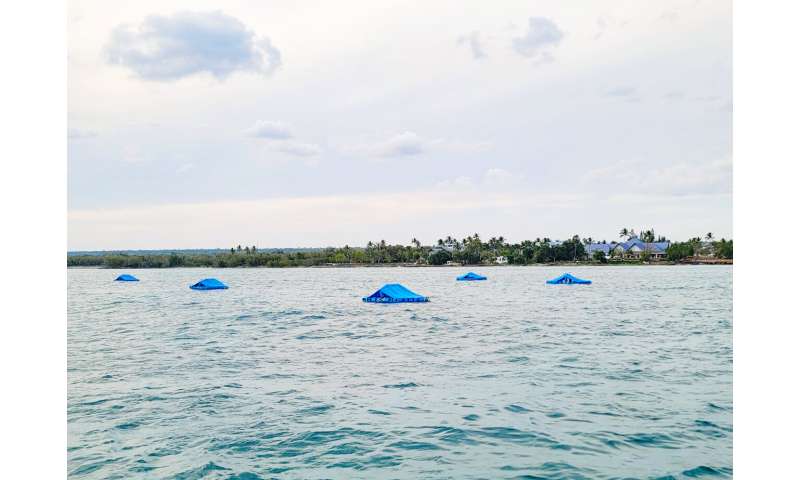
Breeding animals is something that humans have been doing for centuries. However, breeding corals has only been successfully realized in recent years. This is particularly true for larger scale projects. Today, the innovative restoration approach of Coral Seeding offers the opportunity to support the survival of the valuable reef ecosystems that are in a dire situation worldwide.
SECORE stands for SExual COral REproduction, and their Coral Seeding approach not only promotes genetic diversity, but it also enables mass production of coral larvae, by taking advantage of corals' own reproduction potential.
Implementing Coral Seeding on large scales requires scientific research and engineer's thinking to develop the needed tools and technology, as well as building networks of trained practitioners that can implement and adapt the tools and methodologies to local conditions.
New partners are trained within SECORE's custom-tailored program, building up both expertise and capacity. Five years ago, the Fundación Dominicana de Estudios Marinos, FUNDEMAR, were the first organization to enter this program. Now they are not only the first organization having completed their training but in fact are already acting as a multiplier for sustainable reef restoration in the Dominican Republic and beyond.
The cooperation between the two organizations started back in 2017, when FUNDEMAR's staff participated in their introductory training, held at SECORE's locations in Mexico and Curaçao, together with local partners. After initial trials in the field back home, the FUNDEMAR team succeeded in cultivating 8 different species over the 5 years, including Pillar corals (Dendrogyra cylindrus)—an important key species that few have been able to breed to date.
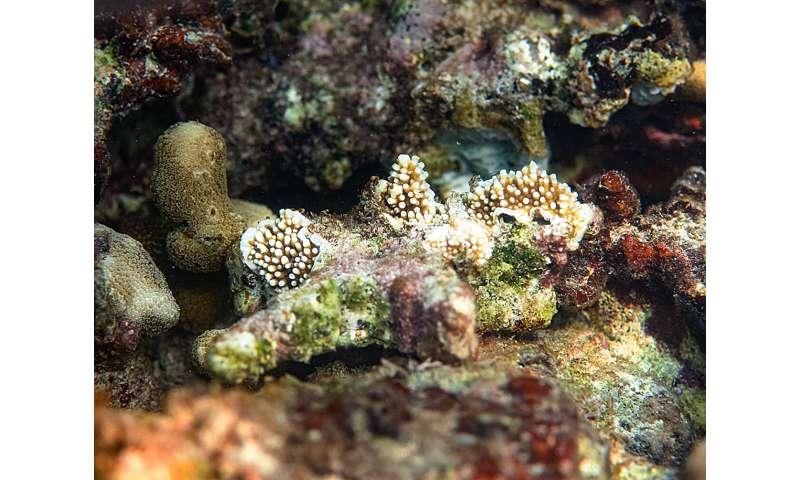
Today, FUNDEMAR's team has taken huge steps towards upscaling. Such as in 2021, when FUNDEMAR more than doubled their coral production and as well as in 2023 when for the first time ever five floating coral nurseries, Coral Rearing In-situ Basins (CRIBs), were operated simultaneously at one location in the Caribbean; overall resulting in a year's production that has been the biggest Coral Seeding operation known so far.
"We monitor the health of our marine ecosystems to see the intervention needed on each site, such as with mangroves, seagrasses and especially corals," says Rita Sellares, FUNDEMAR's Executive Director and the tireless driver behind many successful programs.
"Since 2019, we have been able to outplant over 40,000 coral substrates in total, each with several tiny corals growing on them, to degraded reef areas. At our current production rate, which has increased by 1000% since the program started 5 years ago, we now expect to contribute annually with 20,000 substrates with coral recruits to our reefs in need."
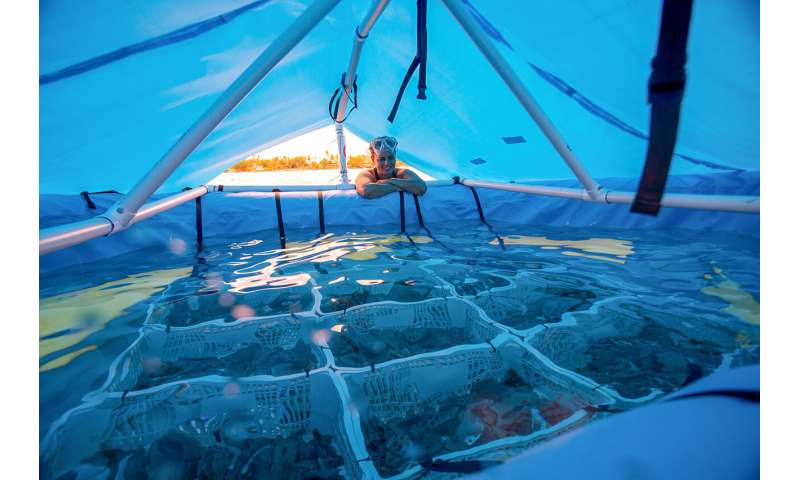
As part of SECORE's implementation partner network, FUNDEMAR now belongs to the ranks of trainers with great potential, both in terms of capacity and manpower. "In just 5 years, FUNDEMAR has grown their Coral Seeding program from the ground up to probably the largest in the world," says Aric Bickel, SECORE's Director of Technology and Implementation.
"We are very excited about the opportunities as we move into the next phase of our relationship. FUNDEMAR is not only continuing to scale their coral output, but they are greatly increasing the amount of staff, the size of their facilities, and the number of groups they are now training to conduct this work in the region. Each of our organizations are well positioned to continue doing really special work together for years to come."
Time is indeed pressing for coral reefs—this decade is decisive for the fate of coral reefs. In addition, the Caribbean has been plagued by a coral disease the last several years that mostly affects species that showed resistance to other diseases and deteriorating environmental conditions: the Stony Coral Tissue Loss Disease.
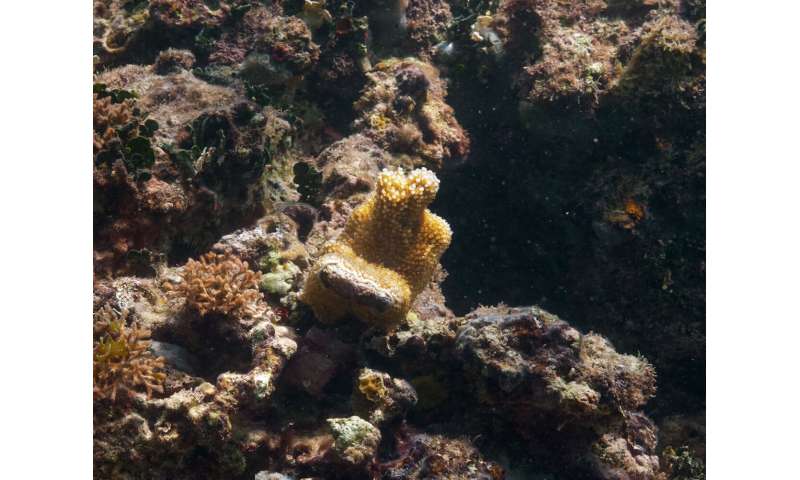
Prior to this, mass extinctions of other ecological key species and increasing anthropogenic impact have weakened the reefs considerably. In the second half of 2023, a disastrous heat wave spread throughout the Caribbean, causing massive bleaching of coral populations.
While some bleached corals may have spawned with their last ounce of strength, many of the bleached corals have died. However, there is hope out on the reefs: "In a recent monitoring, we evaluated bleaching and mortality prevalence, comparing young corals, which were bred using the Coral Seeding approach, with natural colonies, and saw that bred corals suffered half the bleaching losses compared to the co-occurring coral community," says Sellares.
"Through the SECORE implementation network, we know that other Caribbean countries are seeing similar results, demonstrating that assisted sexual reproduction is now our main solution and tool available to face the current reef crises. Seeing our young, bred corals alive and healthy out on the reef, despite all the stressors affecting them in the past years gives us proof that breeding corals for restoration, i.e. applying Coral Seeding, is the hope to save coral reefs."
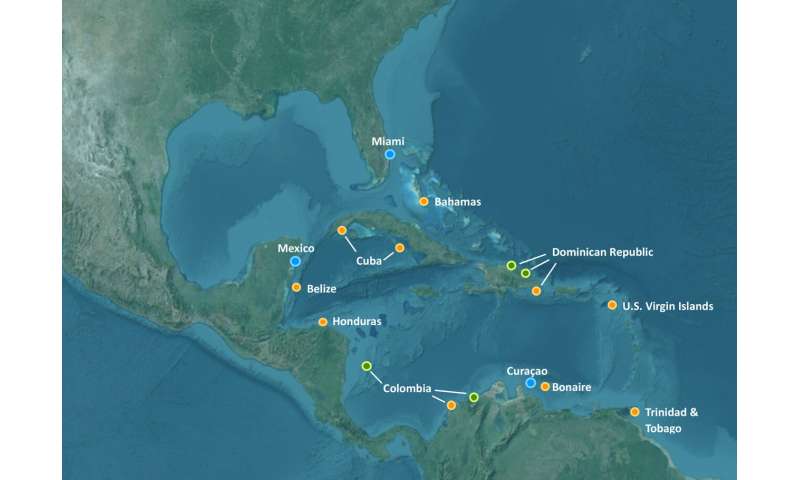
The work of SECORE and its partners incorporates the short period of time that remains to preserve living coral reefs as economically valuable ecosystems. "Our goal is to continue developing the most efficient and effective technologies for Coral Seeding," says Bickel.
"We will then be piloting them in partnership with FUNDEMAR, who operates the most successful Coral Seeding program in the region. The coral breeding pipeline we are building with these technologies is a necessary component for applying advances being made in recent research efforts towards the development of corals that are more resilient to elevated temperatures and disease."
More information:
Fundación Dominicana de Estudios Marinos
Provided by SECORE international